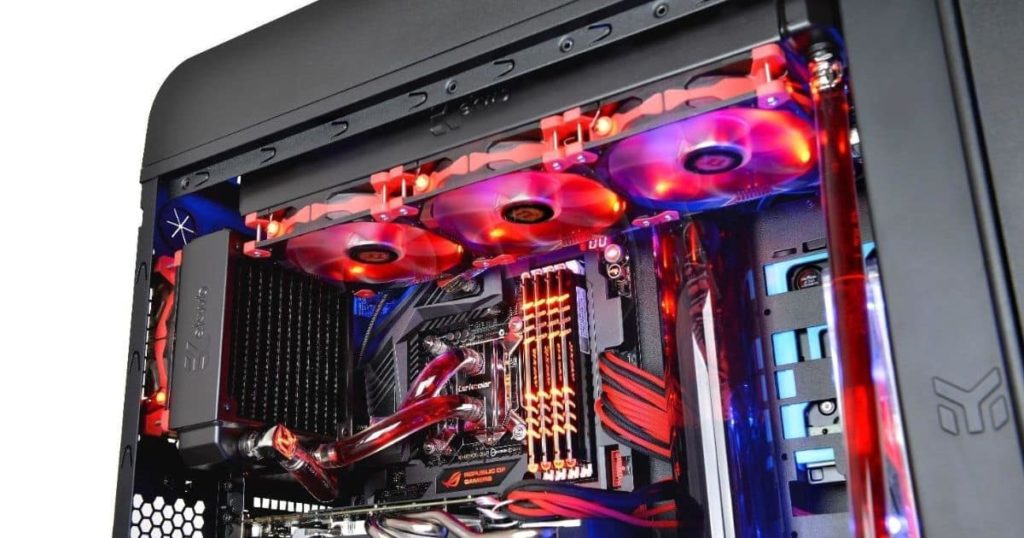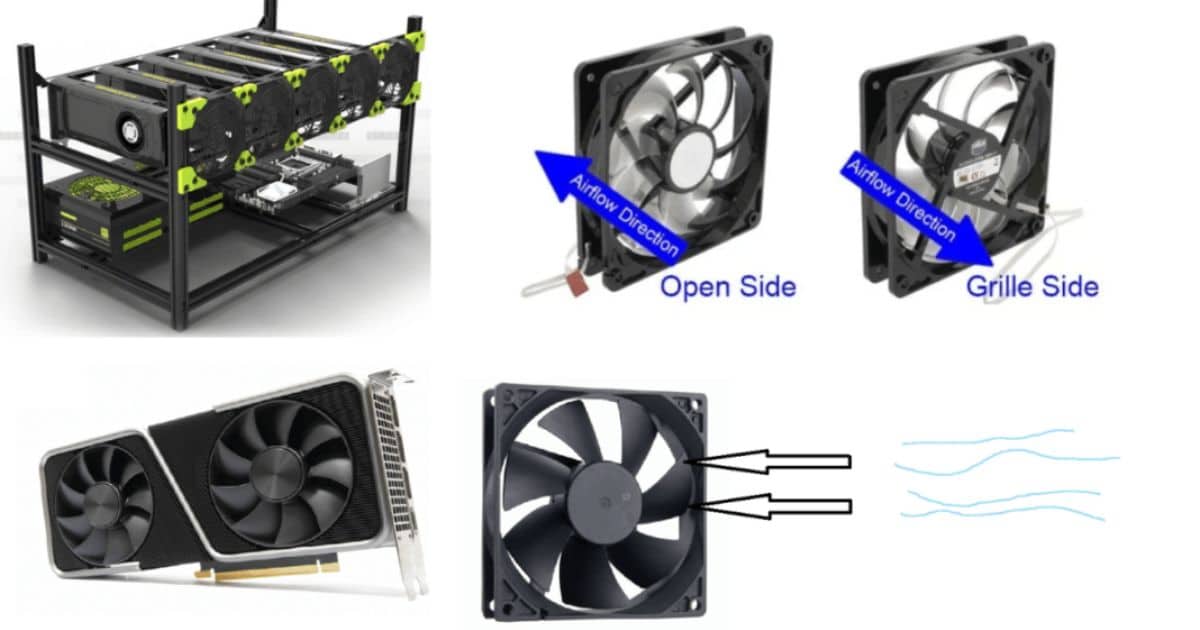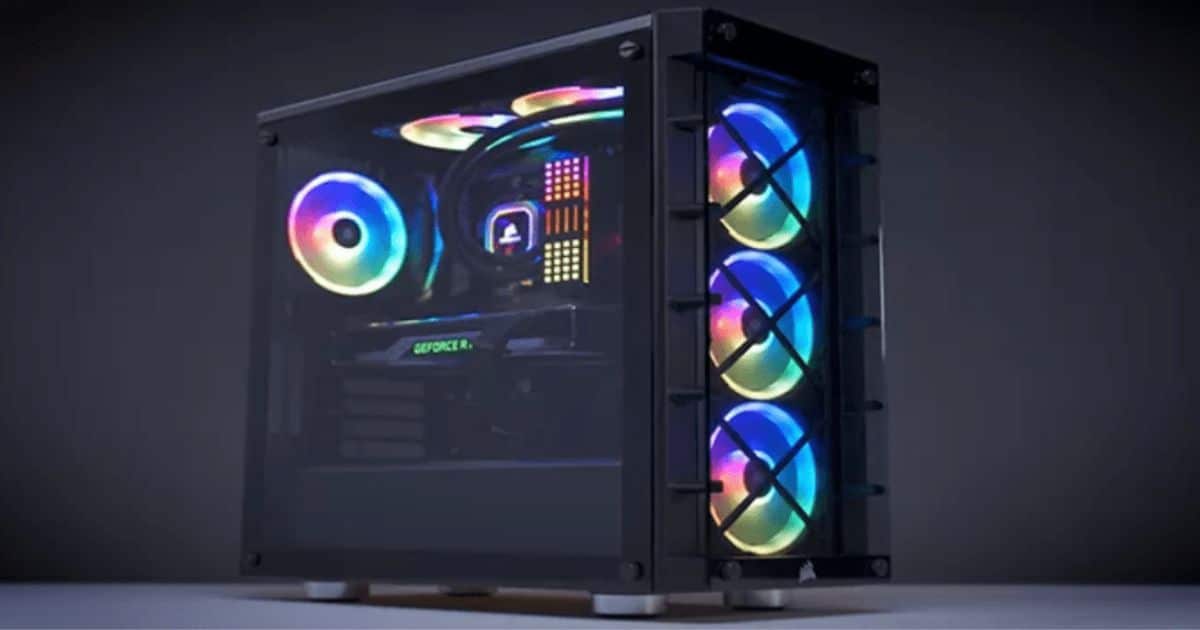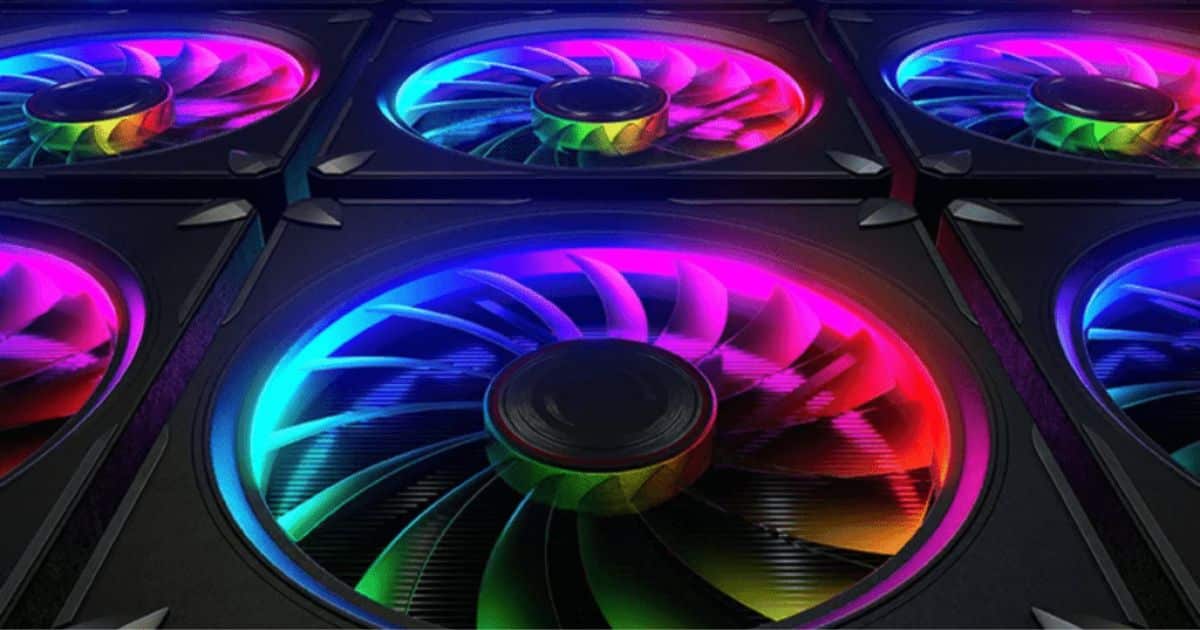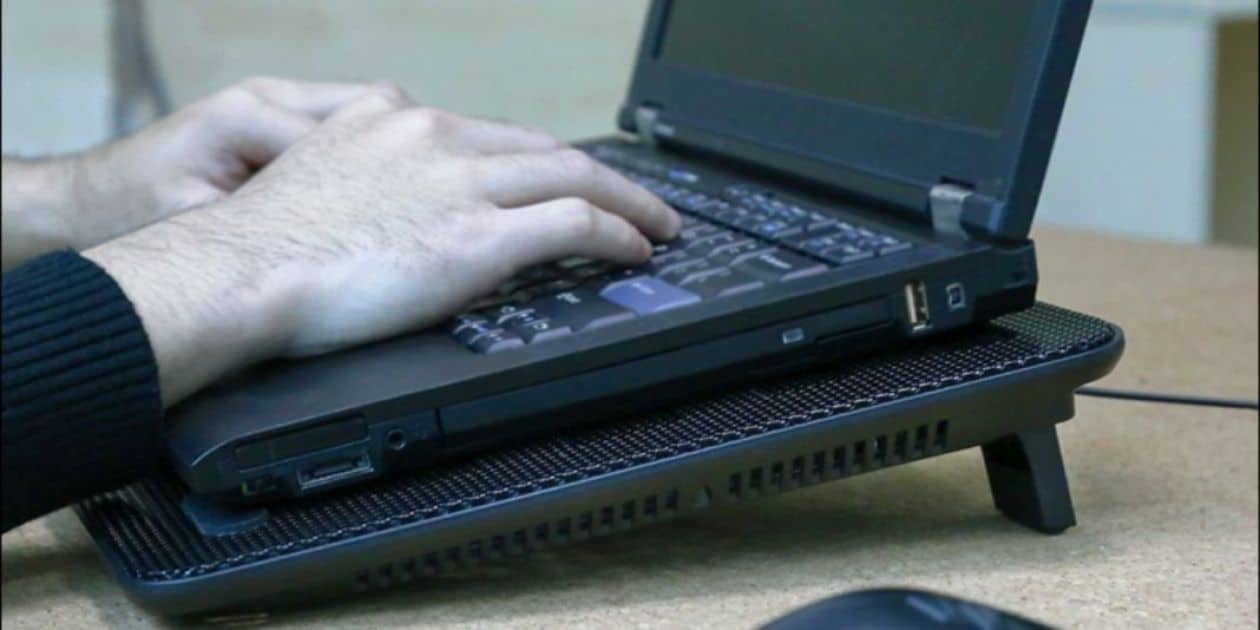Are you a gaming enthusiast looking to optimize your gaming PC’s performance? One crucial component often overlooked is the case fan. In this article, we delve into the importance of proper cooling for your gaming PC and why a case fan is essential in preventing overheating. We’ll explore different types of case fans, factors to consider when choosing one, and provide tips for installation and maintenance. Join us as we unlock the secrets to a cooler, more efficient gaming experience.
Key Takeaways
- Inadequate cooling can result in decreased performance, damage to components, system instability, and permanent hardware damage.
- Proper airflow within a computer case is essential for preventing overheating.
- Investing in a high-quality case fan ensures optimal performance and longevity for gaming PCs.
- Factors to consider when choosing a case fan include airflow, noise levels, fan size, and fan bearings.
The Importance of Proper Cooling
What are the consequences of inadequate cooling on the overall performance and lifespan of computer components? Proper cooling is essential for maintaining the optimal performance and longevity of computer components. Inadequate cooling can lead to several negative consequences that can significantly impact the overall functionality of a computer. When a computer overheats due to insufficient cooling, it can cause the processor to throttle, resulting in decreased performance and slower processing speeds. Additionally, excessive heat can cause damage to various components, such as the motherboard, graphics card, and hard drive, leading to a shortened lifespan. Moreover, inadequate cooling can result in system instability, frequent crashes, and even permanent damage to the hardware. Therefore, investing in proper cooling solutions like case fans is crucial to ensure the smooth operation and longevity of computer components.
Preventing Overheating: Why a Case Fan Is Necessary
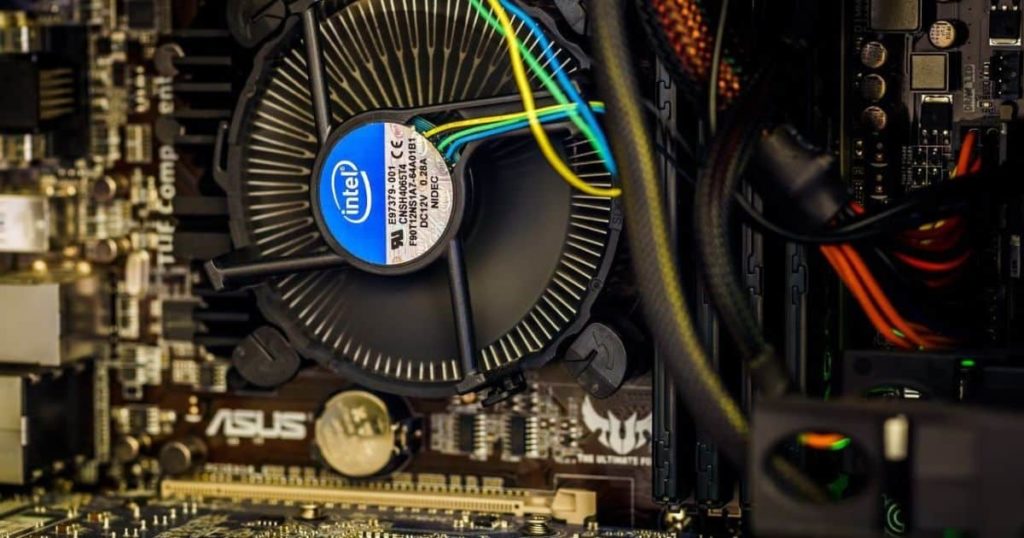
Proper airflow within a computer case is essential for preventing overheating, and a case fan is necessary to facilitate this process. When it comes to gaming PCs, the need for a case fan becomes even more critical due to the high-performance components and intense processing power involved. A case fan helps to expel hot air from the case and draw in cooler air, ensuring that the internal temperature remains within acceptable limits. Without adequate airflow, the components can quickly overheat, leading to reduced performance, system instability, and even permanent damage. Additionally, a case fan can help to remove dust and other particles that can accumulate inside the case, further optimizing the cooling process. Investing in a high-quality case fan is a wise choice for any gamer who wants to ensure optimal performance and longevity for their gaming PC.
Exploring Different Types of Case Fans
The current discussion topic delves into the various types of case fans available and their respective advantages in terms of airflow and noise levels. When it comes to choosing a case fan, there are several options to consider. Here are some key points to keep in mind:
- Airflow: Different fans offer varying levels of airflow, which is crucial for maintaining optimal temperatures inside your PC case. High airflow fans are ideal for cooling powerful gaming rigs, while static pressure fans are better suited for setups with restricted airflow.
- Noise levels: Noise can be a concern for many users, particularly those who value a quiet computing experience. Fans with lower noise levels, often measured in decibels (dB), provide a more peaceful environment without compromising on cooling performance.
- Fan size: Case fans come in different sizes, with the most common being 120mm and 140mm. Choosing the right size depends on your PC case and available mounting points.
- Fan bearings: The type of bearing used in a case fan affects its lifespan and noise levels. Sleeve bearings are cost-effective but tend to be noisier, while ball bearings and fluid dynamic bearings offer quieter operation and longer lifespans.
Understanding these factors will help you select the most suitable case fan for your gaming PC, ensuring efficient cooling and reduced noise levels.
Factors to Consider When Choosing a Case Fan
How do the factors of airflow, noise levels, fan size, and fan bearings contribute to the decision-making process when choosing a case fan? When selecting a case fan, it is important to consider various factors to ensure optimal performance and a pleasant gaming experience. The airflow of a case fan determines its ability to effectively cool the system, with higher airflow resulting in better heat dissipation. Noise levels are another crucial factor, as fans with lower noise levels contribute to a quieter gaming environment. Fan size is important to consider, as larger fans tend to provide superior cooling performance compared to smaller ones. Additionally, the type of fan bearings used can impact the fan’s lifespan and noise level. By carefully evaluating these factors, gamers can make informed decisions when choosing a case fan that best suits their needs.
Tips for Installing and Maintaining Your Case Fan
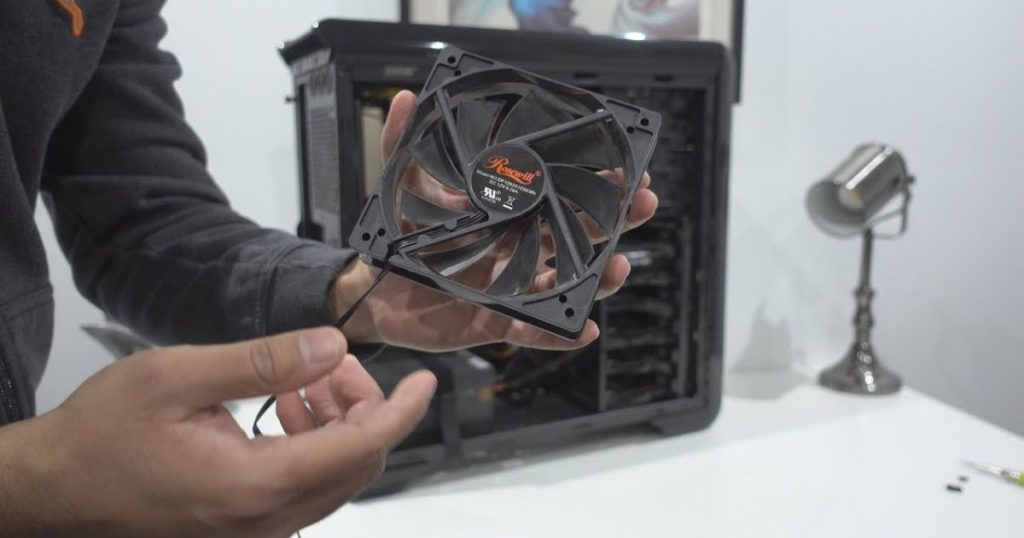
Regular maintenance is crucial for maximizing the longevity and efficiency of your case fan. Neglecting proper maintenance can lead to decreased performance, increased noise, and potential damage to other components of your gaming PC. To ensure your case fan operates at its best, here are some tips to follow:
- Regularly clean the fan blades and remove any accumulated dust or debris.
- Check the fan’s bearings for any signs of wear or damage and lubricate if necessary.
- Monitor the fan’s speed and temperature using software tools to ensure optimal cooling.
- Position the case fan strategically to maximize airflow and minimize heat buildup.
Frequently Asked Questions
What Are the Different Types of Cooling Systems Available for a Gaming Pc?
There are several types of cooling systems available for gaming PCs, including air cooling, liquid cooling, and hybrid cooling. Each has its own advantages and considerations, and the choice depends on factors such as budget, performance requirements, and personal preferences.
How Can I Determine if My Gaming PC Is Experiencing Overheating Issues?
How can one accurately determine if their gaming PC is experiencing overheating issues? By monitoring the temperatures of various components, analyzing performance degradation, and assessing system stability, one can identify and address potential overheating problems to ensure optimal gaming performance.
Are Case Fans the Only Solution for Preventing Overheating in a Gaming Pc?
Case fans are not the only solution for preventing overheating in a gaming PC. Other methods include proper cable management, efficient cooling systems, thermal paste application, and regular cleaning to ensure optimal airflow and temperature regulation.
Can Installing Additional Case Fans Improve the Overall Performance of a Gaming Pc?
Installing additional case fans can improve the overall performance of a gaming PC. These fans help to dissipate heat more effectively, preventing components from overheating and potentially boosting system stability and longevity.
Are There Any Risks or Downsides to Using Case Fans in a Gaming Pc?
There are potential risks and downsides to using case fans in a gaming PC. These include increased noise levels, potential for dust accumulation, and the need for proper maintenance to ensure optimal performance and longevity of the components.
Conclusion
In conclusion, a case fan is essential for a gaming PC to ensure proper cooling and prevent overheating. By exploring the different types and factors to consider when choosing a case fan, gamers can make informed decisions to optimize their system’s performance. Installing and maintaining a case fan is crucial for maintaining a stable and efficient gaming experience. Therefore, it is highly recommended to invest in a quality case fan to protect your gaming PC from potential overheating issues.

Brook over 3 years of professional gaming, esports coaching, and gaming hardware reviews to provide insightful expertise across PC, console, and mobile gaming.
